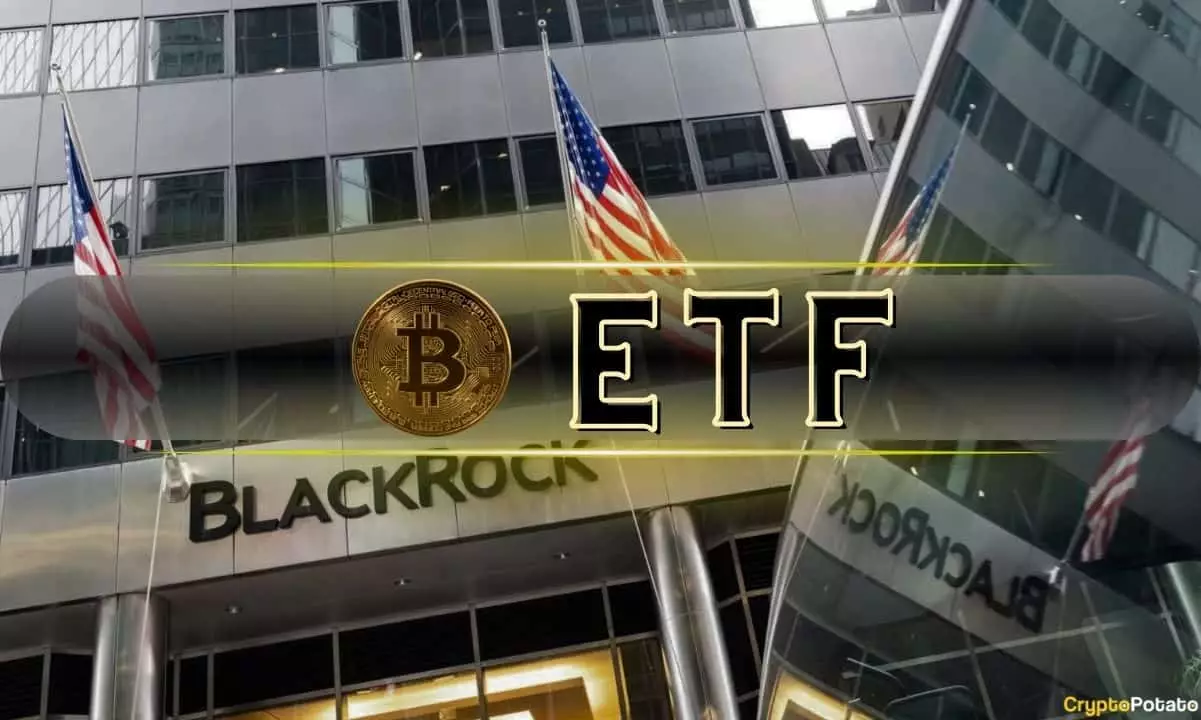On October 21, BlackRock’s iShares Bitcoin Trust (IBIT) secured a remarkable influx of 4,869 BTC, translating into approximately $329 million. This significant movement contrasts starkly with the overall crypto market dynamics, which have recently been characterized by downturns and outflows from competing spot Bitcoin exchange-traded funds (ETFs) in the U.S. While many funds, barring Fidelity’s offering, reported either negligible or negative asset flows, IBIT’s performance stands out as a beacon of resilience amidst adversity.
This latest influx marks the sixth consecutive trading day of growth for the fund, accumulating a staggering $1.47 billion in just one week. Since its inception in January, IBIT has astonishingly attracted over $23 billion, emphasizing its burgeoning popularity. According to ETF Store President Nate Geraci, the recent inflows position IBIT as one of the top ETF launches projected for 2024, highlighting not just investor confidence but also the fund’s market positioning against a backdrop of wider economic uncertainties.
Notably, Bloomberg ETF analyst Eric Balchunas celebrated the week as IBIT’s most productive since March, indicating its assets under management (AUM) now rest within the top 2% of all ETFs. This data paints a somewhat complex picture of the ETF landscape, particularly when examining year-to-date inflows. IBIT now ranks third in this category, surpassing established funds such as Vanguard’s Total Stock Market Index Fund.
In contrast, Fidelity’s Bitcoin ETF saw only a minor positive inflow of $5.9 million, demonstrating that while there is ongoing interest in Bitcoin-based funds, not all ETFs are benefiting equally from the current market conditions. Other notable players, including Bitwise, Ark 21Shares, VanEck, and Grayscale, witnessed significant outflows, particularly correlating with the overall market retreat.
Moreover, the woes did not end with Bitcoin-related funds. Preliminary data from Farside Investors showed that spot Ethereum ETFs experienced a considerable net outflow of $20.8 million on the same day, with Grayscale’s ETHE fund suffering a staggering loss of $29.6 million. This trend signals an ongoing exodus from high-fee funds, likely prompting investors to reconsider their allocations amid turbulent market conditions. As the crypto community grapples with a collective loss of over $3 billion from Grayscale investments alone, it’s evident that volatility continues to plague the Ethereum sector.
At the core of this market interpretation is the recent drop in Bitcoin’s value—tanking by 3.3% from a previous high of $69,300. While this dip may have been anticipated given the record high leverage and futures open interest, Bitcoin managed to stabilize at around $67,500 shortly after, offering a sense of cautious optimism. Nevertheless, altcoins, including Ethereum and others like Near Protocol, Sui, and Litecoin, faced even steeper losses, with total cryptocurrency capitalization falling to $2.44 trillion.
The contrasting trajectories of BlackRock’s IBIT against mainstream market challenges underscore a critical moment in cryptocurrency investment. While Bitcoin ETFs continue to attract significant capital, Ethereum products suffer under the weight of investor discontent and the remorseless tide of market dynamics. As the cryptocurrency sphere evolves, these patterns could signify deeper shifts in investor sentiment, calling for a more nuanced analysis of fund performance and strategic allocation in the digital asset landscape.

